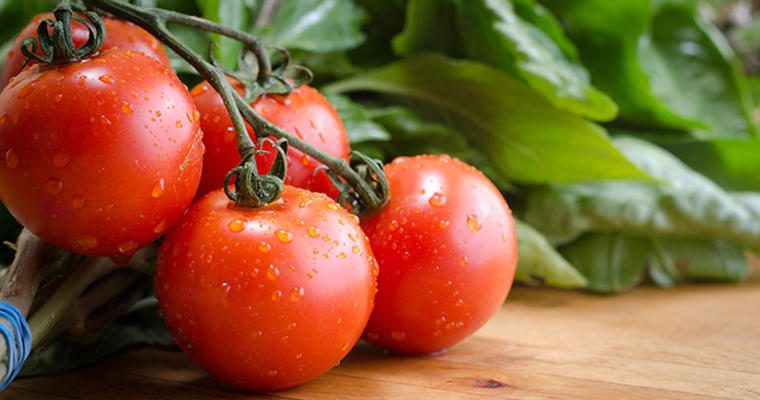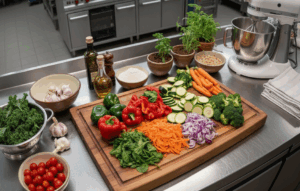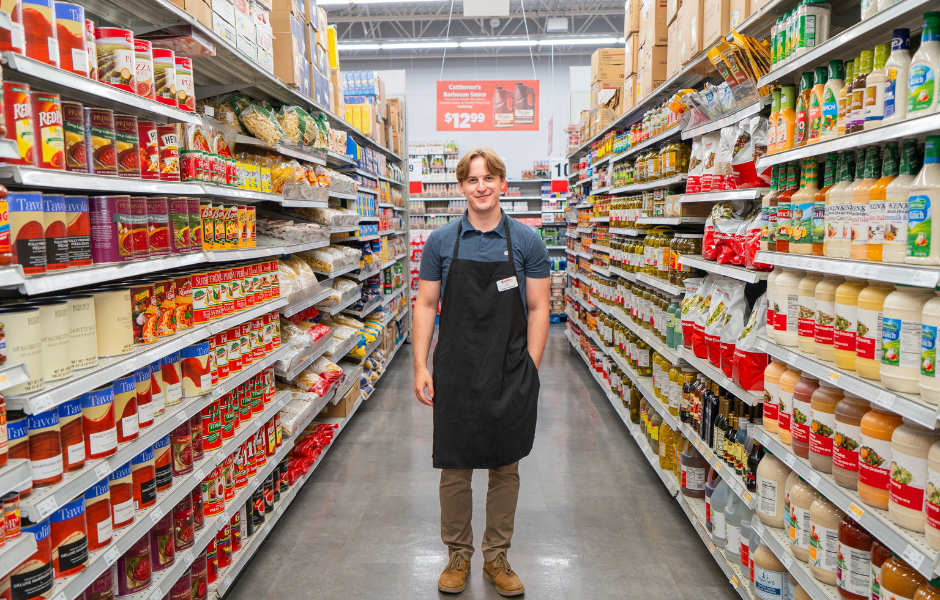Fruits and vegetables are often stored improperly, which causes them to go bad quickly and ultimately get thrown away. Make the most of your food purchases and lessen your environmental impact by storing your produce properly.
According to the USDA, 133 billion pounds of edible food went uneaten in 2010. That’s more than 30 percent of the available U.S. food supply. Properly storing fruits and veggies will make them last longer, leading to less food waste in your operation.
How to properly store your produce
Some fruits and vegetables should be stored in the refrigerator/cooler, but others are sensitive to the cold and should be stored at room temperature.
Produce That Should Be Refrigerated:
- Apples
- Apricots
- Broccoli
- Brussels Sprouts
- Cabbage
- Carrots
- Cantaloupe
- Cauliflower
- Cucumbers
- Figs
- Honeydew
- Kiwi
- Lettuce & other leafy greens
- Plums
Produce That Should Be Stored at Room Temperature:
- Avocado
- Bananas
- Eggplant
- Garlic*
- Nectarines
- Onions*
- Peaches
- Potatoes*
- Tomatoes
- Watermelon
- Winter Squash*
*Keep these in a cool, dark, dry location and they should last up to a month or more. But, separate them so their flavors and odors don’t mix.
Produce items in bold text release ethylene gas—a ripening agent—that will speed the decay of ethylene-sensitive foods (ethylene-sensitive foods are in italics). Keep ethylene-producing foods separate from other produce, especially the ethylene-sensitive ones, or you may notice items rot more quickly than they should.
Tip: Ethylene gas can be used to your advantage when trying to quickly ripen produce. Place unripe ethylene-producing foods in a paper bag to trap in the gas and speed the ripening process, or place a ripe ethylene producer in a bag with unripe fruit to quickly ripen.
For more information on how to properly store produce, visit:
http://ucce.ucdavis.edu/files/datastore/234-1920.pdf
http://www.homefoodsafety.org/downloads/produce-infographic











